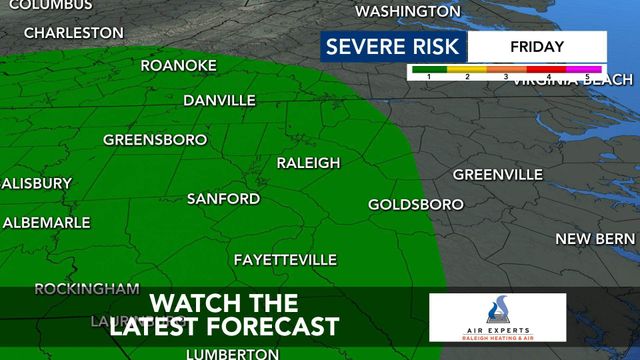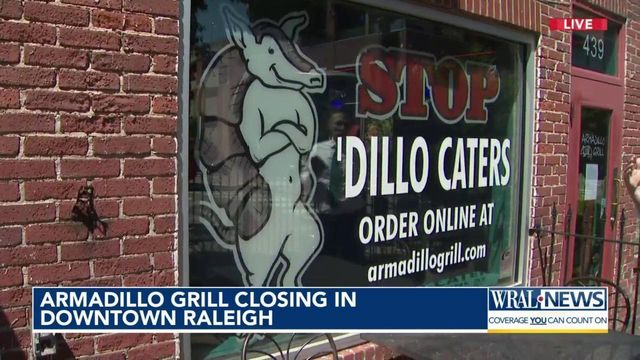Battle brewing between craft beer makers, distributors
Kristie Nystedt wasn't initially sold on the idea of turning her husband's home brewing hobby into a business.
"It just seemed unimaginable and quite risky," Nystedt said during an interview in her office just off the side from Raleigh Brewing's tap room, which is tucked behind the intersection of Hillsborough and Gorman streets.
She was working in finance for a medical software company, and her husband is a pilot for a major airline, so they didn't exactly have a ton of extra time on their hands. Then, her company faced a merger, and American Airlines faced bankruptcy.
"That was when I thought, 'It's more risky not to bet on ourselves,'" Nystedt said.
That bet has paid off.
Raleigh Brewing is part of a burgeoning craft brewing scene in Raleigh and one of nearly 200 small breweries across the state. While virtually all of those brewers would rather concentrate on filling kegs and glasses with good brew, they're making a push for big changes to the state's alcohol laws and, in the process, picking a fight with the state's politically powerful beer wholesale and distribution companies.
Small brewers like Raleigh Brewing have banded together through the North Carolina Craft Brewers Guild, a local trade group, and Craft Freedom, a group put together to challenge North Carolina's beer distribution laws.
Specifically, craft brewers would like to raise the cap on the amount of beer they can distribute without working with a wholesaler, a company that acts as a middleman between beer producers and bars, restaurants and other points of sale. Under current law, once a brewery sells 25,000 barrels of beer per year – one barrel is about 330 12-ounce beers – it can no longer deliver its own product.
"I don't want to be told what to do with my business," Nystedt said. "I have invested so much money and so much time in building this business, Raleigh Brewing. I care significantly about this business and all the people that I hire."
The problem is more imminent for John Marrino, founder and owner of Olde Mecklenburg Brewery, the first craft brewery established in Mecklenburg Country. He says he's created 133 jobs over seven years.
Marrino's company has 15 employees that handle its sales and distribution in the Charlotte area. He has no desire to enter other markets, he said, noting the company is barely keeping up with demand.
"This year, I'm on a run rate to exceed this cap and have to dramatically change my business plan," he said. "We would prefer not to do that."
Marrino and the small brewers are bucking a "Three Tier System" that dates back to the post-Prohibition era. The idea of inserting a mandatory layer between alcohol manufacturers and sellers was to ensure that excise taxes would be properly collected and to put a brake on large breweries' ability to push their products at the expense of public health.
At least two measures raising the self-distribution limit on breweries have been filed this year. The most prominent, House Bill 500, which Reps. Chuck McGrady, R-Henderson, and Jon Hardister, R-Guilford, filed Tuesday, would raise the self-distribution limit from 25,000 barrels to 200,000 barrels, in addition to making a number of smaller changes to benefit small brewers, such as allowing a tap room to sell products that are not made in house.
"My interest is in wanting to remove the burdensome red tape and nonsensical limit on the growth of the craft beer industry," McGrady said at a press conference Tuesday.
Small brewers argue that the system that once kept big beer in check is now giving large brewers an advantage. Because North Carolina's 28 wholesalers move so much product from national companies, there's little incentive for them to pay attention to smaller beer makers.
Marrino said the average distributor has hundreds of beers in its portfolio and is more likely to push retailers and restaurants to stock the ones with more clout and a larger contract than beers from a small local outfit.
"We become an 'also-brand,'" Marrino said.
"I have 650 restaurants carrying my products," he said. "Frankly, if I was in a distributor's portfolio with 980 other brands, I'd be lucky if I had 100 restaurants carrying my beer."
"Breweries know they are their best salespeople," said Margo Knight Metzger, director of the North Carolina Craft Brewers Guild. "You can't expect a wholesaler to sell that beer for you. It's a lot of hard work and tooting your own horn."
But Tim Kent, executive director of the North Carolina Beer and Wine Wholesalers, says the small breweries pushing for a barrel limit increase are merely trying to upend the system for their own benefit. While his members are worried about losing business, he said, they're also worried about changing state Alcoholic Beverage Control laws in ways that benefit a few firms in the short run but engender long-term chaos.
"By creating a special privilege for a select few breweries, you're opening the door to a legal fight," Kent said.
An expanding limit for existing craft brewers could open the door to big companies being able to make an end-run around the wholesaling system, he said, citing the case of Arizona-based Four Peaks Brewing Co., which lobbied for an expansion of that state's self-distribution limit and then sold to Anheuser-Busch In Bev. The international company then inherited the craft brewer's privileges.
Most craft brewers sell around 7,000 barrels of beer a year or less. Only three makers that don't currently use distributors – Olde Mecklenburg Brewery, Guilford County's Red Oak and Charlotte's NoDa – are approaching the current limit.
"Who is really the beneficiary of this?" Kent asked.
"Alcohol is not baseball gloves or widgets," he argued. "Alcohol is a unique product. It is a controlled substance much like tobacco and pharmaceuticals. It is regulated and it is highly taxes for a reason."
Nystedt doesn't argue her business is highly regulated. However, she said, the ability to keep operating within the law is all the incentive Raleigh Brewing needs to pay nearly a quarter-million dollars per year in various taxes – with no wholesalers involved.
Those taxes will grow, craft brewers argue, if their businesses are allowed to grow without being forced to rely on an outside company.
"The biggest value-add a distributor provides is to a non-local brewery," Marrino said. "If we're going to be local breweries here in North Carolina, you have to ask the question, how does a distributor justify the 25 to 30 percent margin he's going to take from the brewer? Does he add that value? And the answer, unfortunately, is 'no' for a local brewery."
This fight is more than philosophical.
Although the wholesalers association is small itself, it has nine contract lobbyists at its disposal, including former House Speaker Harold Brubaker, former Republican Party Chairman Tom Fetzer and former Senate Rules Chairman Tom Apodaca. Democracy North Carolina, a good-government watchdog group, has reported that the association's political action committee and various industry executives contributed nearly $1.5 million to political campaigns over the past four years.
"We are family-owned companies that have been in existence, in most cases, two to three generations," Kent said. "We have long been an active player in North Carolina politics. This is a regulated industry. In the same way that other regulated businesses have an interest in the legislature, so have we."
This year, however, the craft brewers are flexing their muscle, too, says Metzger with the Craft Brewers Guild.
"This is the first time that the full weight of the Brewers Guild, which represents nearly 200 craft breweries, has been behind this issue," she said. "When you couple that with this issue-based group, Craft Freedom, we have a stronger voice than we've ever had before. This is not a small industry anymore."











